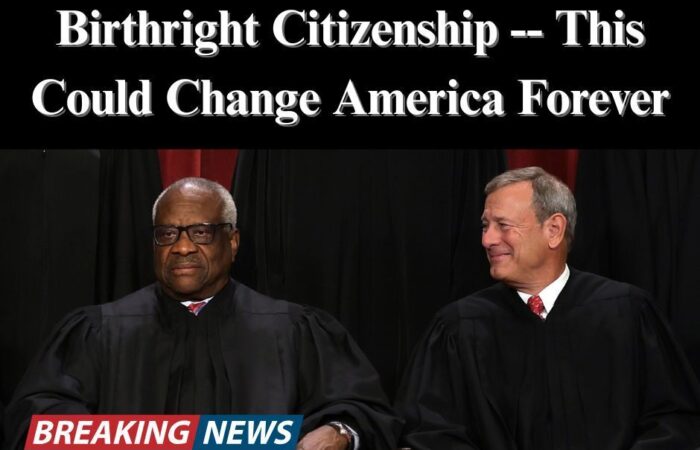Supreme Court Issues Landmark Ruling on Trump’s Birthright Citizenship Executive Order
The U.S. Supreme Court recently handed down a pivotal decision regarding former President Donald Trump’s executive order aimed at ending automatic birthright citizenship for children born in the United States to undocumented immigrants.
While the Court did not rule directly on the merits of the policy, the ruling significantly curtails the power of federal courts to issue nationwide injunctions that block executive actions across the entire country.
This nuanced decision permits limited enforcement of Trump’s order in certain jurisdictions, establishing an important legal precedent on the scope of universal injunctions.

This procedural victory for Trump marks a major shift in how courts may handle challenges to sweeping federal policies moving forward. Senior Legal Correspondent Margot Cleveland explained, “The Supreme Court’s ruling restricts lower courts from halting presidential policies nationwide, allowing Trump’s executive order to be enforced in parts of the country.”
The executive order, signed on Trump’s first day in office, challenges the traditional interpretation of the 14th Amendment’s Citizenship Clause, which grants citizenship to nearly all born on American soil. Trump’s order asserts that birthright citizenship should only apply if at least one parent is a U.S. citizen or lawful permanent resident.
If fully enacted, this policy could affect approximately 255,000 infants born annually to unauthorized immigrants or temporary visa holders, according to research from the Migration Policy Institute.
The 14th Amendment, ratified in 1868, declares: “All persons born or naturalized in the United States, and subject to the jurisdiction thereof, are citizens of the United States.” Historically, this has been understood to guarantee citizenship to virtually all children born in the country—excluding children of foreign diplomats. However, proponents of Trump’s policy argue that the Amendment’s original purpose was to secure citizenship rights for formerly enslaved people and that its broad application today enables “birth tourism” and illegal immigration.
Trump’s order also posits that unauthorized immigrants are not fully “subject to the jurisdiction” of the U.S., and thus their children should not automatically acquire citizenship.
The White House has maintained that the Citizenship Clause was intended to overturn the infamous 1857 Dred Scott decision, which denied citizenship to Black Americans, but was never meant to confer citizenship on children of undocumented immigrants.
Back in 1995, the Justice Department stated that ending birthright citizenship would require a constitutional amendment. Yet, Trump has long insisted that an executive order alone could bring about this change.
“It was always told to me that a constitutional amendment was necessary. But guess what? It’s not,” Trump remarked in 2018. “It’s in the works, and it will happen via executive order.”
Several Democratic-led states and immigrant rights groups swiftly challenged the order in court. Federal judges in Maryland, Massachusetts, and Washington state issued nationwide injunctions blocking its enforcement, deeming it likely unconstitutional.
Interestingly, earlier this year, two constitutional law professors from Georgetown and the University of Minnesota published an opinion piece in The New York Times suggesting Trump’s arguments might have more legal merit than commonly thought. They questioned, “Has someone who entered unlawfully and remains without authorization truly accepted the laws and protections of the U.S.?”
The Supreme Court’s ruling, while limited in scope, signals a turning point in the contentious debate over birthright citizenship and the extent of presidential power. Although it permits partial enforcement of Trump’s order, the fundamental constitutional issues remain unresolved and are expected to resurface in future litigation.
This decision highlights the complex interplay between immigration policy, constitutional interpretation, and judicial authority. As the nation continues to wrestle with these difficult questions, the ultimate outcomes will shape the future of citizenship rights and the boundaries of executive action.
